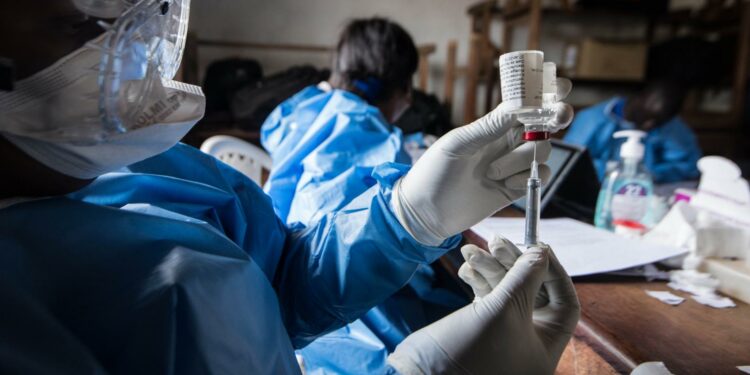Five questions for African countries that want to build climate-resilient health systems
Every day seems to bring a new headline about a devastating climate event. African countries aren’t spared. A “rain bomb” in South Africa. Flooding in Nigeria. Cyclones battering Mozambique, Malawi, Zimbabwe and Madagascar. Drought in Kenya.
These events have enormous health and social effects, among them death, injuries, malnutrition and diseases (infectious and non-communicable). This all puts tremendous pressure on countries’ health systems, both in terms of caring for those affected and because facilities like hospitals and clinics are vulnerable to damage and destruction.
Extreme weather events, for example in South Africa’s KwaZulu-Natal and Eastern Cape provinces, also disrupt energy supplies, communications, supply chains, the workforce and provision of essential services such as maternity and chronic care.
How, then, can African countries build more resilient primary healthcare systems as the effects of climate change worsen? We recently conducted a scoping review on primary healthcare and climate change in Africa and found very little evidence to guide health systems in answering this question.
We looked for any studies in the African context that investigated primary healthcare and climate change. The review mapped the available evidence onto the World Health Organisation’s (WHO’s) health system building blocks: leadership and governance; the health workforce; the health information system; infrastructure and technology; service delivery; and health financing.
We identified five key questions that health systems must answer to build more resilient primary healthcare.
1. What training do medical professionals need?
Health professionals in most African countries receive barely any training related to the health and social effects of dramatic changes in weather patterns.
There are some moves to change this. The Southern African Association of Health Educationalists recently published a position paper calling for the integration of planetary health and environmental sustainability into health professions curricula in Africa. The World Organisation of Family Doctors has also launched a global online training programme on planetary health.
This kind of training should focus on how different health services – for instance nutrition, HIV, TB, malaria, immunisations, maternity – should adapt to the effects of climate change. It should also offer insights into how facilities can be better prepared for emergencies and extreme events.
But training new health professionals isn’t enough. Continuing professional development and in-service training is key too.
2. What are the community’s key vulnerabilities?
The primary healthcare system in Africa should be community-orientated, focusing on the health needs of the whole community, not just those who use a particular facility. This kind of primary care has become policy in some health systems, for instance in South Africa’s Western Cape province.
The community-orientated approach has usually focused on addressing the social determinants of ill health such as early childhood development or education. Now, environmental determinants of health and key climate-related vulnerabilities must also be considered.
For example, air pollution from coal-fired power stations is a major cause of non-communicable diseases such as ischaemic heart disease, stroke, asthma, chronic obstructive pulmonary disease and lung cancer.
Building informal settlements in flood plains or having no trees in urban slums can increase vulnerability to floods and high temperatures. Floods can displace people and cause injuries as well as water-borne diseases such as cholera. High temperatures can lead to dehydration, heat exhaustion and even death from heat stroke.
3. How can the health system track environmental changes?
Health information systems traditionally collect data on health services and a population’s health needs. For instance, such systems can identify outbreaks of notifiable infectious conditions to support rapid responses.
But they rarely include indicators that warn of environmental challenges.
Primary health care facilities and services need to identify the particular climatic events that they are likely to face. For some this may be extreme temperatures or drought. For others it may be severe storms or cyclones, or sea level rise and storm surges.
They should also identify the most likely changes in the burden of disease linked to such events. For example, will they face an increase in climate migrants, heat-related conditions, water or vector borne infectious diseases, mental health problems or malnutrition?
Our scoping review did not find any African examples of health information systems tracking the changes or providing early warning of climate-related events.
4. How can health systems build climate resilience?
Primary healthcare facilities and services need to continue functioning in the face of environmental challenges, such as cyclones, and provide safe healthcare, for example with extreme heat. Facilities need robust infrastructure, lighting, water, heating and cooling, and energy supply. Services need healthcare workers, equipment, medication and supplies, and communications.
For example, a hybrid energy system may improve resilience and mitigate the health system’s carbon footprint. Such systems may also provide resilience against power cuts. Health systems need to consider how they can design facilities and systems to withstand environmental challenges, respond to emergencies and continue offering essential services.
5. What are the next steps?
The scoping review reveals a widespread absence of evidence on how to address the issue of climate change in African primary healthcare. There’s a need for more research.
South Africa’s Stellenbosch University and the primary care and family medicine (PRIMAFAMED) network in sub-Saharan Africa are studying the impact of climate change on primary healthcare, developing tools for facilities to identify their risks and vulnerabilities, and identifying the learning needs of primary care providers.
Health systems also need to explicitly address the risks of climate change. There are examples that others can learn from: for instance, the Department of Health and Wellness in South Africa’s Western Cape province has established a Climate Change Forum to develop policy on both mitigation (becoming carbon neutral by 2030) and adaptation (preparing for climate related events and challenges.








